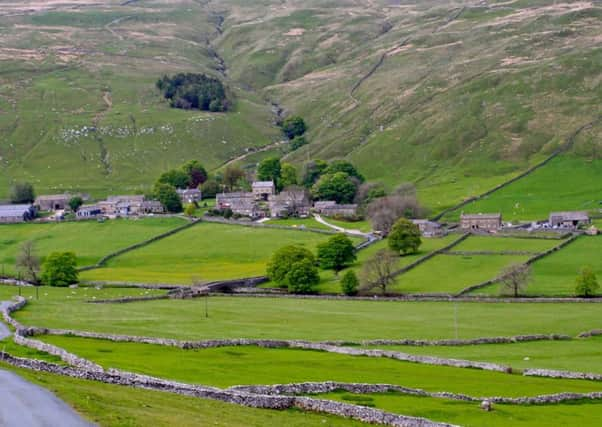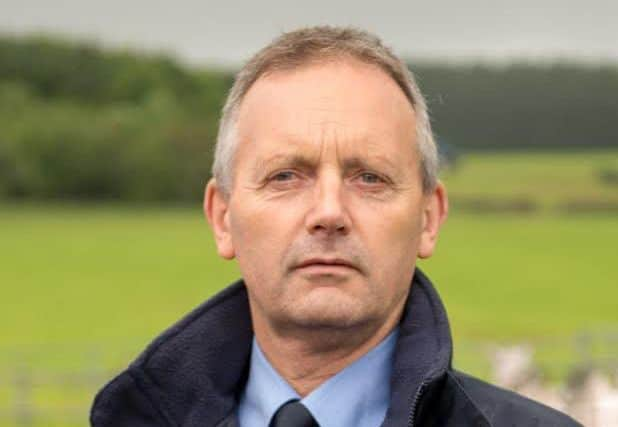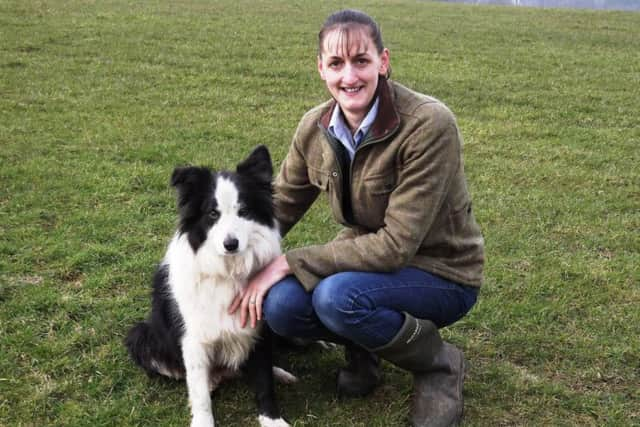Sheep leader says uplands deserve real support post-Brexit


Phil Stocker, chief executive of the National Sheep Association (NSA), also said that too scant returns are delivered to hill farmers by the marketplace, as he made the case for better support post-Brexit to ensure the protection of the uplands and its landscapes that both people and wildlife derive benefits from.
His plea to politicians to listen to the wishes and concerns of the upland farming fraternity comes in the run-up to both next month’s General Election and, on the day before voters go to the polls, the staging of the North’s biannual industry summit - NSA North Sheep - on June 7.
Advertisement
Hide AdAdvertisement
Hide AdSome 8,000 visitors are expected to attend the flagship regional event, which is considered to be one of the UK’s leading livestock events.


In an interview with Country Week, Mr Stocker said: “Sheep farming in grassland areas, but more so in upland areas, provide a wide range of public goods that are not recognised through the marketplace. It provides the landscape that people want to see, farmers are busy building habitats and keeping footpaths clear - a host of benefits that are enjoyed by the public and contribute to people’s health and well being and we would like support for agriculture tuned to that provision of things that the public like and are getting free of charge at the moment.
“To be perfectly honest, if we don’t provide mechanisms of support to protect them, our upland farmers will have to make production so extreme that they can survive from productivity alone which would be in conflict with providing those public goods, or they would go bankrupt and we would lose the benefits they provide.
“If a farmer is doing well, they tend to reinvest their money into the local economy, whether it is to put up fencing, maintain buildings or even buy a new tractor - types of things that keep a lot of other businesses going. If we don’t keep these farms viable, then what is the price for other rural businesses?”
Advertisement
Hide AdAdvertisement
Hide AdMr Stocker said the industry was making plenty of effort to put forward its case ahead of election day on June 8, and that the same energy must be expended in the months that follow as the next government untangles Britain from EU membership.


“A lot of effort is being put in to get messages across to MPs and civil servants and I think they are listening but we need to keep reminding them because there will be a rush to do things - such as sign up to trade deals with countries across the world - but if they don’t understand the implications of signing up to free trade deals for example, then our industries will be damaged.”
Mr Stocker said the mood among sheep farmers heading to North Sheep would likely be one of “cautious optimism”.
“There is a lot of unanswerable questions on the agenda and concern about what is going to happen over the next two years as we come out of Europe but there is an element of excitement and optimism that cancels out those negative feelings,” he said.
Advertisement
Hide AdAdvertisement
Hide Ad“A lot of farmers, in my experience, voted to come out of the EU and while I don’t know if there was a realisation of how hard it was going to be, farmers seem prepared for that and just want change. There are clearly some real opportunities ahead.


“There is a sense of cautious optimism and I think that is reflected by the number of youngsters showing an interest in this industry, and you will see that at North Sheep with young shepherd competitions and other things.”
The NSA event may be hosted by a farm near Durham - David Smith’s West Shields Farm - but it is a Yorkshire woman, Heather Stoney-Grayson, of Bedale, who is co-ordinating the show - one she said would offer the chance for both serious debate and more relaxed diversions.
“Not only is it to be an event for those in the sheep farming industry to enjoy themselves, it is also intended to be an educational, informative event and to highlight opportunities for best practice.
Advertisement
Hide AdAdvertisement
Hide Ad“So, with the election the following day (June 8) and Brexit on the not too distant horizon, as a committee we were keen to provide an all-encompassing opportunity for discussion and debate and of course come elements of light heartedness.


“We have worked hard to ensure that visitors will see the latest industry developments and have the opportunity to seek advice and learn from industry professionals.”
For more information about NSA North Sheep on Wednesday, June 7, visit www.nationalsheep.org.uk/northsheep
NORTH SHEEP HIGHLIGHTS
At least a dozen Yorkshire-based companies are among the 200-plus exhibiting at the event.
Advertisement
Hide AdAdvertisement
Hide AdSkipton-based shepherd James Dewhirst will give sheep dog handling demonstrations.
Adrian Shepherd, head of land management at the Yorkshire Dales National Park Authority, will join Patrick Begg, rural enterprises director for the National Trust, to discuss the impacts of upland sheep farming on the environment.
Chartered surveyors George F. White will host a seminar on business resilience when subsidy and environmental schemes change or end.